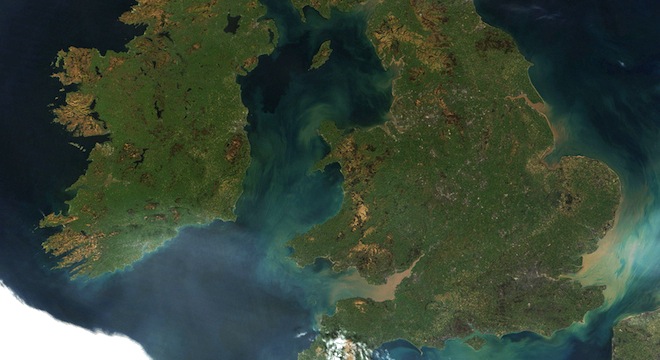Earth has a song, and now so do some of its smallest inhabitants.
Peter Larsen, a biologist at Argonne National Laboratory in Lemont, Illinois (outside of Chicago) has created distinct musical tracks representing different attributes of wild blue-green algae cultures floating in the western English Channel.
Collectively, the four songs which Larsen and Argonne have posted online for all to enjoy, all sound much like bebop jazz that was popularized in the 1940s, leading Argonne to brand the entire project “Microbial Bebop.”
But don’t let the funky name and music flows fool you: There’s some legitimate scientific analysis going on behind the melodies.
“Each composition represents a specific question that can be asked of the available data,” Larsen wrote in an email to TPM.
Larsen said one of the “singles” he released, titled “Bloom,” “asks the question, what are the physical parameters in the ocean that are likely to cause these sudden changes in microbial population structures” that allows one species of microbe found in low numbers to suddenly become the dominant members of their community.
Here’s the “Bloom” audio posted by Argonne on YouTube:
Here’s another track released by Larsen, with the catchy title “Fifty Degrees North, Four Degrees West.”
But that was just one example of the kind of microbial data that Larsen took from the blue-green algae cultures in the English Channel and turned into tunes: Others include concentrations of such chemicals as “nitrate, nitrite, saline, silicate, and chlorophyll,” or more basic parameters like temperature and salinity.
Larsen generated the melodies through a software algorithm he wrote specifically for the purpose. It uses the freeware jazz instructional program Improvisor to convert the data into songs.
That said, Larsen is candid about the fact that the music is primarily a thought exercise that comes after the data has already been collected and looked over.
“The music itself doesn’t do much to actually analyze data,” Larsen told TPM. “I am trying to approach thinking about very complex systems in new or unexpected ways. Using musical structures as a metaphor for the underlying patterns in molecular or ecological data does help in thinking about how to approach highly complex datasets.”
As for whether Larsen will take his algae auto-tuning experiment pro and release an album on iTunes or Google Play or another music store or sharing website, the biologist told TPM he isn’t ruling out the idea.
“I would love to derive a set of compositions from the microbial system observations collected in the aftermath of the Deepwater Horizon oil spill,” Laresen wrote. “I have been engaging in informal talks with area jazz musicians to collaborate. If that happens, I certainly hope the results will end up on something like iTunes.”
Sounds like the microbial symphonies are just getting started.






